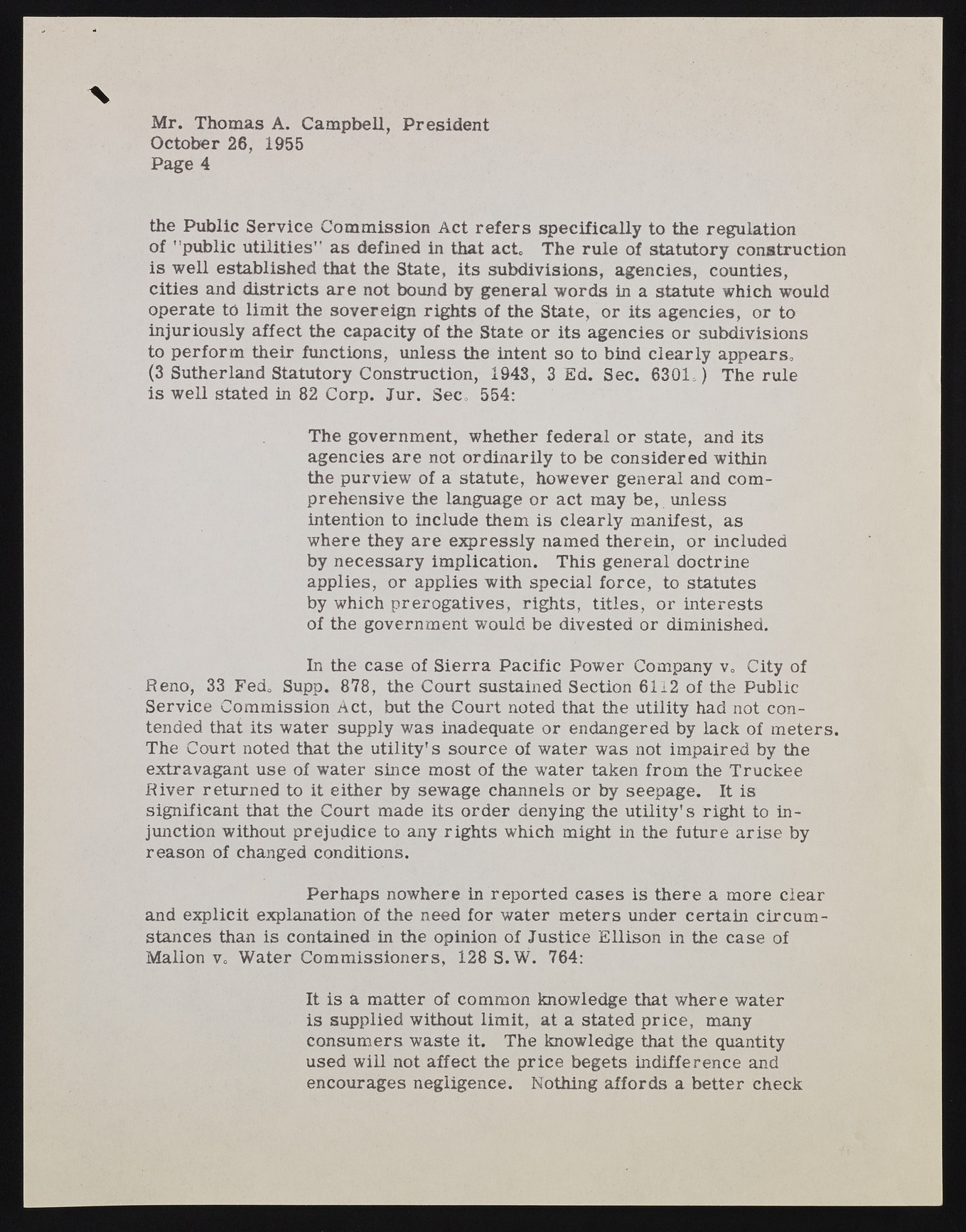Copyright & Fair-use Agreement
UNLV Special Collections provides copies of materials to facilitate private study, scholarship, or research. Material not in the public domain may be used according to fair use of copyrighted materials as defined by copyright law. Please cite us.
Please note that UNLV may not own the copyright to these materials and cannot provide permission to publish or distribute materials when UNLV is not the copyright holder. The user is solely responsible for determining the copyright status of materials and obtaining permission to use material from the copyright holder and for determining whether any permissions relating to any other rights are necessary for the intended use, and for obtaining all required permissions beyond that allowed by fair use.
Read more about our reproduction and use policy.
I agree.Information
Digital ID
Permalink
Details
More Info
Rights
Digital Provenance
Publisher
Transcription
Mr. Thomas A. Campbell, President October 26, 1955 Page 4 the Public Service Commission Act refers specifically to the regulation of "public utilities" as defined in that act. The rule of statutory construction is well established that the State, its subdivisions, agencies, counties, cities and districts are not bound by general words in a statute which would operate td limit the sovereign rights of the State, or its agencies, or to injuriously affect the capacity of the State or its agencies or subdivisions to perform their functions, unless the intent so to bind clearly appears, (3 Sutherland Statutory Construction, 1943, 3 Ed. Sec. 6301,) The rule is well stated in 82 Corp. Jur. Sec, 554: The government, whether federal or state, and its agencies are not ordinarily to be considered within the purview of a statute, however general and comprehensive the language or act may be, unless intention to include them is clearly manifest, as where they are expressly named therein, or included by necessary implication. This general doctrine applies, or applies with special force, to statutes by which prerogatives, rights, titles, or interests of the government would be divested or diminished. In the case of Sierra Pacific Power Company v. City of Reno, 33 Fed, Supp. 878, the Court sustained Section 6112 of the Public Service Commission Act, but the Court noted that the utility had not contended that its water supply was inadequate or endangered by lack of meters. The Court noted that the utility's source of water was not impaired by the extravagant use of water since most of the water taken from the Truckee River returned to it either by sewage channels or by seepage. It is significant that the Court made its order denying the utility’s right to injunction without prejudice to any rights which might in the future arise by reason of changed conditions. Perhaps nowhere in reported cases is there a more clear and explicit explanation of the need for water meters under certain circumstances than is contained in the opinion of Justice Ellison in the case of Mallon Vo Water Commissioners, 128 S.W. 764: It is a matter of common knowledge that where water is supplied without limit, at a stated price, many consumers waste it. The knowledge that the quantity used will not affect the price begets indifference and encourages negligence. Nothing affords a better check

